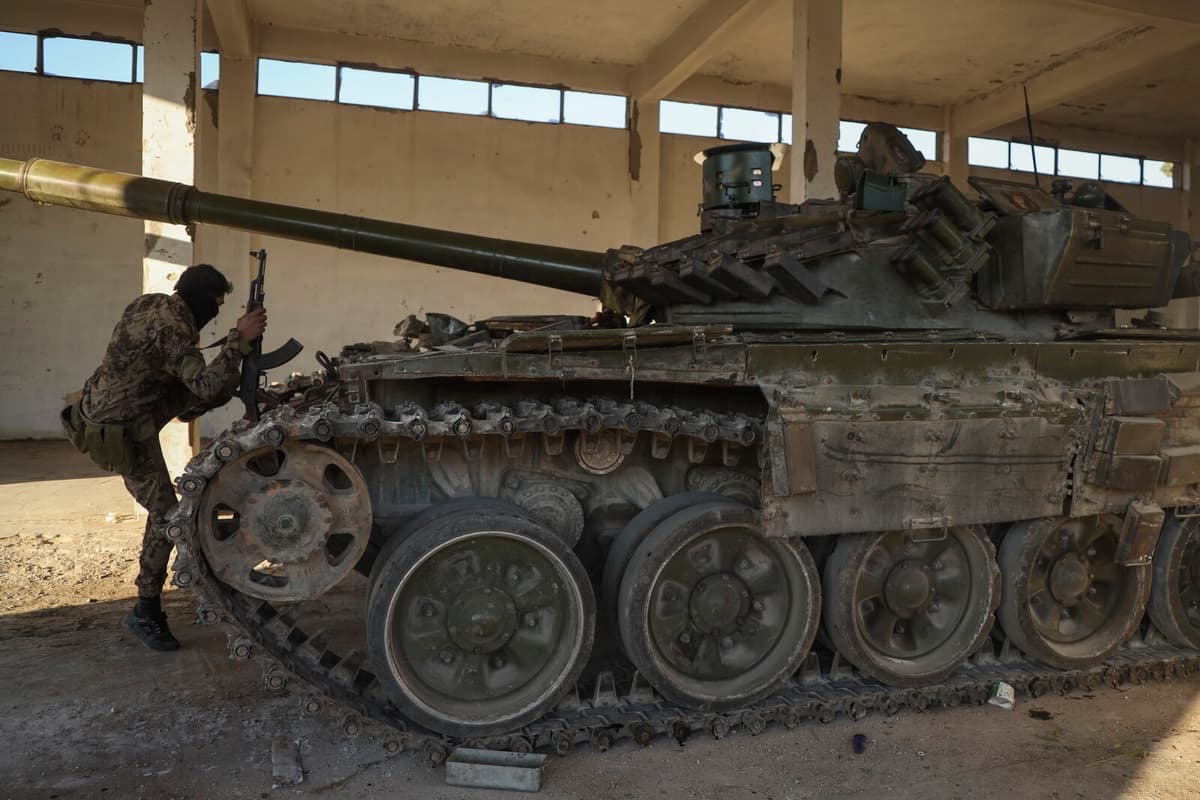According to the Russian military, Russian air forces are helping the Syrian military in the "operation to counter terrorist aggression" in the provinces of Idlib, Hama, and Aleppo.
Earlier, Rami Abdel Rahman, who leads the Syrian Human Rights Observatory (SOHR), has made the assessment that extremist Islamists with the Hayat Tahrir al-Sham (HTS) movement at the forefront "control the city of Aleppo, except for the neighborhoods held by Kurdish forces".
This is a turning point in the war, according to Rahman.
For the first time since the conflict broke out in 2012, the Syrian regime's forces have no control over Aleppo.
Over 400 killed
They were able to take the city easily and quickly, as regime forces withdrew without resistance on Friday and Saturday. And they did so after reports that the rebels were rapidly taking town after town in the countryside.
In total, more than 400 people, including at least 61 civilians, have been killed since the offensive began on Wednesday, according to SOHR. Over 200 of them are from HTS and more than 130 are fighting for regime forces.
SOHR reports that eight civilians, including two children, were killed in Russian airstrikes on a refugee camp in the city of Idlib on Sunday. Another 50 civilians are reported to have been injured.
So far, nothing seems to be stopping the jihadist offensive. According to reports, the offensive is led by HTS, which can be described as the remnants of the al-Qaeda terrorist sect in Syria. But they are cooperating with a motley crew of other rebels, many of whom have recently received renewed support from Turkey – a turning point in the war through proxy forces that major powers are using in Syria.
al-Assad in meeting
The losers in this week's battles are, apart from Syria's regime, Russia and Iran. The two countries' foreign ministers, Sergey Lavrov and Abbas Araghchi, have expressed "extreme concern" over the escalated fighting in a phone call, according to the Russian Foreign Ministry. Lavrov also spoke with Turkey's Foreign Minister Hakan Fidan, according to Moscow.
Araghchi met with Syria's President Bashar al-Assad in Damascus on Sunday, according to Iranian state media. It is the Syrian leader's first meeting since the offensive began. The two "discussed bilateral relations and regional developments", according to Irna.
Syria's President Bashar al-Assad remains in power after the devastating civil war, which was triggered by the Arab Spring in 2011, has ravaged large parts of the country. al-Assad has continued support from Russia, Iran, and Shia militias in the region. Currently, his allies are largely tied up in other wars and conflicts.
The wars just to the west, in Gaza and Lebanon, have in some way spilled over into Syria as Israel has stepped up airstrikes against targets in Syria.
The Assad regime has limited control over Syria's territory, as Kurdish forces maintain self-rule in the northeast and another collection of rebel forces hold areas in the north and northwest, largely with support from Turkey.
Aleppo was Syria's largest city before the outbreak of war in 2011, but in a long and bloody siege, large parts of it were reduced to ruins by indiscriminate Russian airstrikes. In 2016, government forces regained control of the city, which became a clear turning point in the war.






